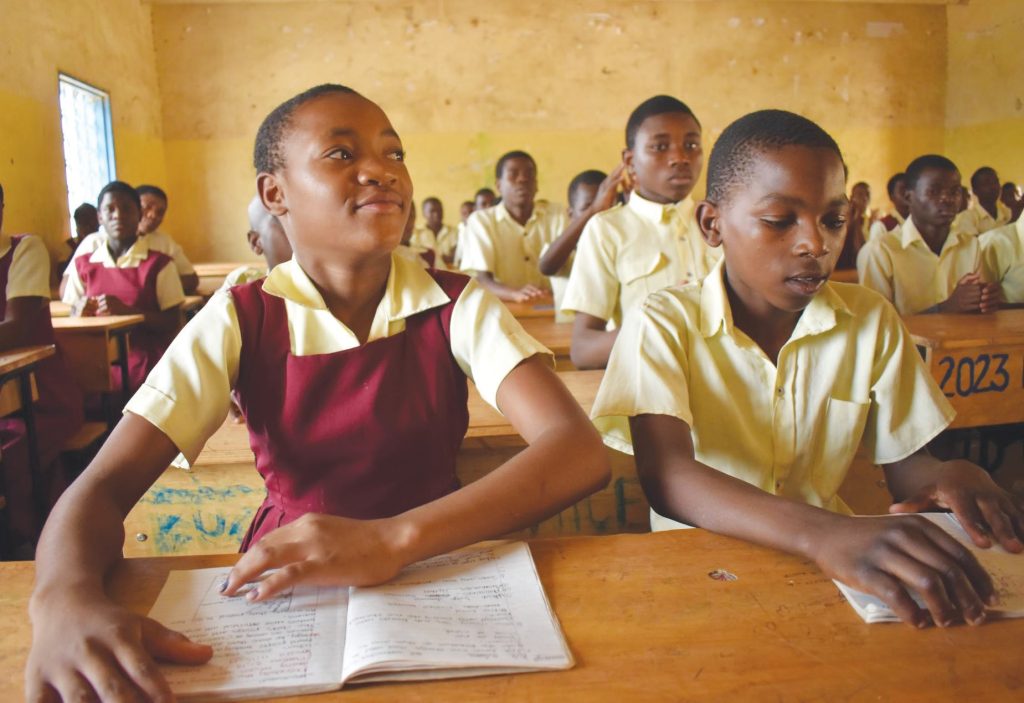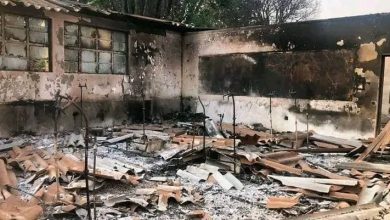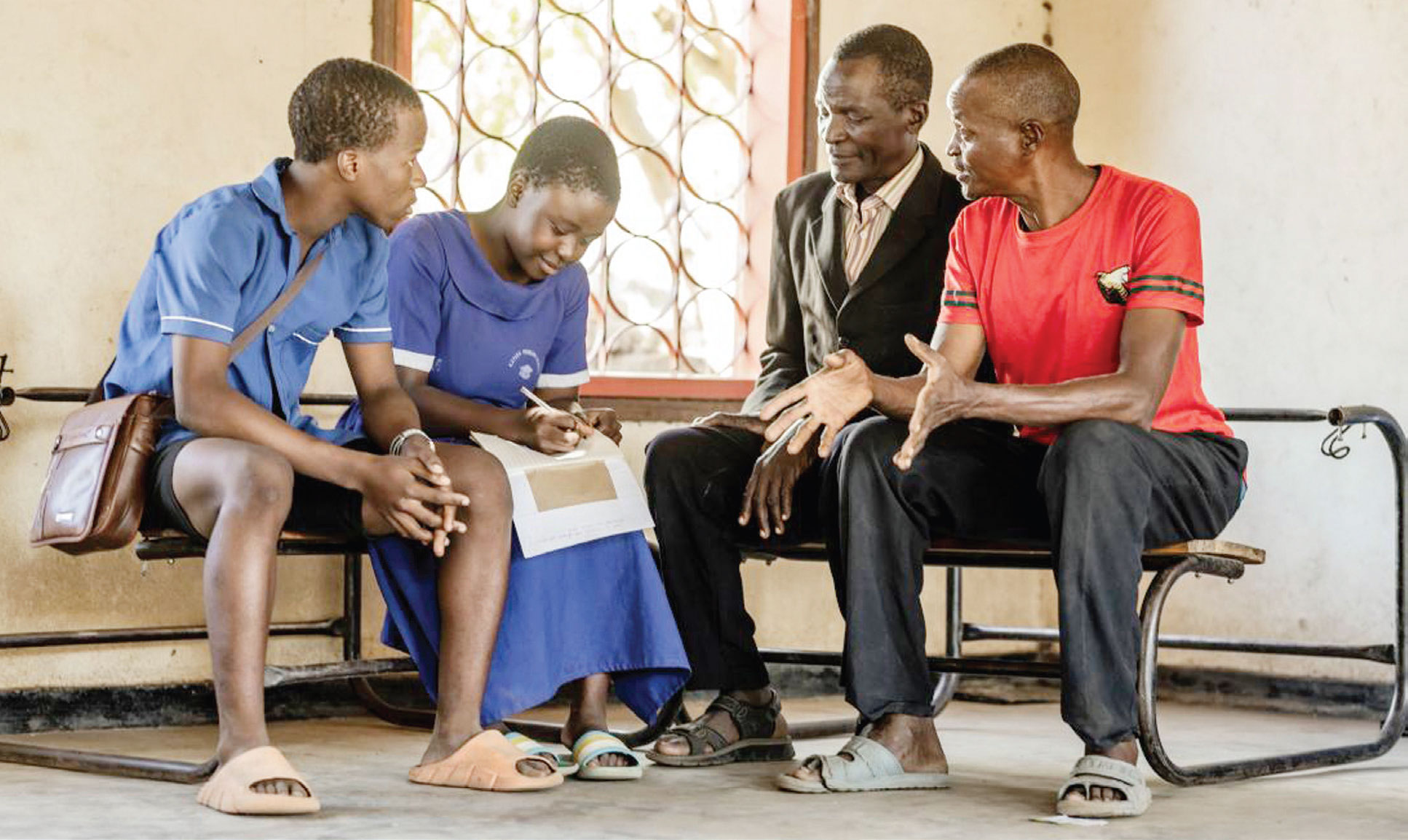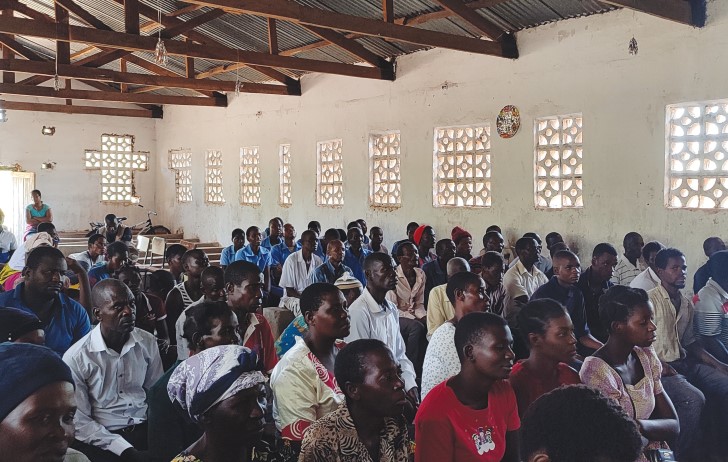Desks brighten learners’ dreams
For decades, residents of Ndirande, the most populous township in Blantyre City, were worried about overcrowding in the nearest schools.
They felt relieved in 2015 when Blantyre City Council constructed Malabada Primary School on the borderline of the fast-growing settlement.

The four blocks with two classrooms each welcomed the first intake in 2016, liberating children in nearby hills and valleys from long walks to Chitsime and Makata primary schools, where a teacher served over 100 children per session.
However, when Sheila German, 12, joined in Standard Five from a better-equipped private school in Lilongwe, the newest public school in Ndirande lacked the basics for quality education, including desks, textbooks, safe wate and electricity.
The girl from the capital city, now in Standard Eight, found her classmates sitting on dusty floors with no desks.
“In Lilongwe, my class had just about 40 children, and each had a desk. At Malabada, more than 100 of us scrambled to sit closer to a chalkboard and I waited for two years to have a desk,” she recounts.
Sheila struggled to learn due to biting ants, backaches and writing in notebooks pressed against a knee.
“My dream to become a nurse was in danger,” she says. “Due to the discomfort, I wasn’t eager to go to school.”
Not any longer.
This year, Sheila and her schoolmates received 100 new desks supplied by Unicef Malawi with support from the Kids In Need of Desk (Kind) Fund, founded by US television host Lawrence O’Donnell and Unicef USA. The charity has delivered more than 300 000 desks to at least 1 200 schools nationwide.
The desks were allocated to standards Five, Six, Seven, and Eight to close the gaps.
Sheila is delighted that everyone in her class of 88 now uses a desk, a learning experience once reserved for star performers in periodic quizzes administered without much regard for slow learners.
To the learners, the new desks are not just gifts from the fundraising campaign by the benevolent broadcaster’s first encounter with children sitting on cold floors in crowded classrooms.
They are vital assets prized and protected by all and for all, for they have lifted the learners off dusty floors that frequently left their uniforms soiled and needing daily washing.
The desks have also put the learners at an equal eye level as the teachers and what they scribble on chalkboards.
In the four senior classrooms, teachers freely pace between rows to reach learners at the back as well as children with special needs.
Memory Gray, a 13-year-old Standard Seven girl who joined Malabada Primary School in 2018, first used a desk this year when a truckload arrived from Unicef.
“Before, it wasn’t easy to learn. There was no seating plan, teachers couldn’t move without stepping on children’s legs and girls were too shy to stand up, with all eyes on them,” she narrates.
Memory requests more desks for all learners beyond her class and school as quality learning requires a safe, friendly environment with appropriate facilities.
The Ministry of Education estimates that about 3.4 million learners in Malawi have no desk.
Blessings Makola, a 13-year-old classmate of Sheila’s, enrolled at Malabada in 2020.
Says the boy, who dreams of becoming a soldier: “With desks, learning has become exciting and I’m always alert to what the teacher is saying. I learn in comfort.
“After schooling, I return home with a clean uniform. Instead of buying laundry soap daily, my family uses the money to buy our needs, including educational needs.”
Blessings appeals for desks for his junior schoolmates stuck on dusty floors.
“We need support to save them from the hardship we used to face before Unicef assisted us,” he says.
Procuring more desks is one of the priorities on the School Improvement Plan.
Malabada school manager Ida Nkhokwe says Unicef support was timely for the learning institution “that could only afford eight to 10 desks per year” with the meagre grant for competing priorities listed on its action plan.
She explains: “We have 32 skilled teachers, but they cannot deliver quality education due to lack of basic facilities, including desks which make classes easy to manage.
“Since the school was opened, Unicef has been the first partner to provide desks. This is a huge relief as children in all senior classes no longer sit on the floors. Now teachers move freely to assist children with special needs.”
Learners with low vision occupy front desks to clearly see teachers’ writings on the chalkboards.
“The desks have made teaching and learning easy and exciting. No one is being left behind,” Nkhokwe states.
And Sheila feels uplifted and fired up to chase her dream.
She states: “With desks, I learn comfortably and take questions without being intimidated by boys looking at me. When I have a problem, the teacher comes to explain.”
Six years after its inception, Sheila’s school only has 183 desks for about 2 100 children split into two shifts to beat congestion. Half learn from 7am to 11.45am and the other from noon to 4.45pm.





